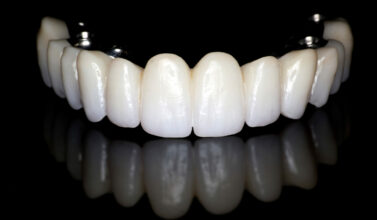Thinking about Dental Implant Treatment Overseas?
Overseas dental holidays may look appealing, but be aware of all the facts & risks. It seems like the perfect deal, right? You get a couple of weeks away in overseas in a luxury hotel, enjoy some fun in the sun, and of course, have an important dental procedure thrown in at “a fraction of the price” you’d pay back home. What could go wrong, huh?
Unfortunately, many people researching dental clinics and surgical treatments research the up-front costs without thinking through the long-term issues associated with dental implants. They get blinded by the ridiculously cheap price and holiday experience – and stop there – forgetting that dental implant surgery is a serious surgery and not a holiday add-on. This is where things can go wrong because when it comes to dental implants, costs aren’t the only consideration. For example, you’ll need to factor in any common complications and potential consequences that come with an oral surgical treatment – in other words, the things that regularly pop up mid-treatment and those that could go wrong – and what this may mean to your health and finances while stuck in a different country away from home, family and Australian medical resources.
To assess the viability of overseas dental treatment, it’s imperative you investigate the company’s training standards, the dentists, the nurses, the country’s government regulations, hygiene & infection control standards, insurance policies and much more. Their advertising may grandly state ‘top technology’, ‘high quality clinics’, ‘American (or similar) trained Dentists’. But is any of this actually true? Who is holding them accountable to those statements? Many countries don’t have strict guidelines like Australia, and we, unfortunately have seen our fair share of botched overseas medical treatments. Poor quality, damaged or secondhand implants used, signs of poor infection & hygiene controls, failures due to unskilled implant placements, and patients who have had emergency issues while overseas (with no Medicare or general hospital coverage) and have returned with no teeth and huge out of pocket medical bills.
Visiting Dentists in India, Malaysia, Thailand, Bali – What is the ADA’s stance?
Some Aussies have had dental work completed overseas, but despite the appeal of popping over to “there” for some discount dentistry, the Australian Dental Association advocates against this. Although you may save some money upfront, you could end up losing a lot more than your savings.
If you’re thinking of overseas dental work, we encourage you to please visit Aria Dental for a complimentary consultation first. It may be incorrect to assume that you can’t afford dental work completed at home in Perth. The initial cost of implant surgery may be a little higher, but you may save money over your entire treatment journey – and the benefits are well worth considering. Often the overseas cost savings is from using cheap or less skilled labour, having no regulator or formal OH&S standards and no consumer safety nets – which, when undergoing a medical procedure or surgery, are all things patients would consider a basic requirement.
Why have your Dental Implant Surgery in Perth
When looking at the cost of dental implants, you have to be realistic. Factor in everything. Understand that it’s not just about the cost of the implant or the placement options. Because having dental implants is a serious medical procedure – there’s ongoing care, local support and legal protection you should consider.
You may think that you need a single-tooth implant, but you really don’t know if you have any other underlying oral or dental issues. If you have been missing a tooth for a while, it is very likely that your bone and gums have shrunk, and you will require a level of grafting. Do you have any gum disease affecting your oral health that needs to be addressed first? The bone quality of your actual jawbone can determine whether you can have a single implant fitted or whether bone grafting is required. Damaged or decaying, or missing teeth for a period of time affects the health and well-being of your surrounding teeth – are those teeth healthy, or do they require management? Have your teeth moved and need straightening? All these things can only be assessed in person by a dentist, and different factors will affect the overall cost of your treatment and the time. But if left unmanaged, can affect the success of your implant rehabilitation and increase the risk of complications and failure. What you thought was a simple single dental implant may be much more complicated and now requires a wider range of treatments and the time to complete them.
If you choose to have Dental Implants in Perth, here are the benefits:
-
No airfares or hotel accommodation – Book your procedure in Perth, and you don’t have to fly overseas and pay for expensive accommodation
-
Less time off work – Have your implants placed here, and you’ll save travel time
-
After-care – This is the big issue that many forget. After-care is a big deal with dental implants. You’ll require follow-up appointments, are in pain, need a check-ups, regular telephone communications, advice, care from our dental staff, and more.
-
Health insurance – You may be entitled to private health insurance rebates here in Australia, but not if you have your procedure is performed offshore.
-
Maintenance – As mentioned, you’ll need a variety of maintenance appointments over the following years. Have your procedure performed offshore, and Australian dental clinics may not have the equipment and similar materials to adapt or substitute the materials you were given offshore and won’t be able to provide ongoing maintenance. Australian dentists are unable to service non-TGA-compliant dental implants. If repair components are not available in Australia, even minor complications need to be directed back to their overseas dentist, which inevitably means you footing the bill for another expensive trip overseas. Consequently, it’s not uncommon to see patients with dental treatment completed overseas needing their work redone. The costs presumably saved on the initial treatment often end up being paid many times over for the maintenance and rectification of complications.
-
Radiation standards – All x-ray equipment used in dental surgeries in Australia is licensed and maintained. The units are calibrated to reduce the radiation dose that a patient receives and to ensure that the units are not leaking radiation. There are design protocols whereby the surgery walls are lead-lined to prevent radiation scatter. It is important to find out whether these protocols are in place in overseas clinics.
-
No False Advertising – Dental tourism benefits from the general tourism industry overseas – a lot of money is invested in promoting overseas travel – and dental services. There’s no regulatory body (such as Australia’s AHPRA) that protects against ‘false testimonials’, and there’s no way of knowing whether the online reviews are genuine. Advertising and online testimonials are not reliable sources.
-
Complications – No surgical procedure is bullet-proof. Things can go wrong. If you’ve returned home to discover something’s not right, it’s going to be quite inconvenient to take more time off work, fly back, and pay for another round of accommodation. Additionally, most travel insurance policies do not cover the cost of medical treatment as part of a dental tourism visit.
-
Legal ramifications – You’re protected here in Australia by a variety of practitioner and hygiene laws. Step offshore, and you’re privy to a different legal system spoken in a different language – with no Australian legal support.
-
Infection control – Overseas clinics may appear ‘state-of-the-art’, but what does that tell you? Judging a clinic by its appearance is not the most sensible approach. There should be strict protocols in place, such as the Australian standards, where certain classes of autoclaves must be used, and appropriate disposal procedures must be followed. Dentists in other countries may claim their equipment is sterilised appropriately, but unless there are strict regulatory guidelines and systems in place, no one would be held accountable. Australians are often reluctant to drink water overseas due to concerns regarding hygiene and infection. It would be fair to question whether they would be willing to undergo a medical or dental surgical procedure overseas with less stringent guidelines than in Australia.
-
Quality of care – Many overseas dentists claim they are specialists; however, they are only recognised as specialists by the requirements of their country. Australian standards to become a dental specialist are amongst the highest in the world. The immediate dental results may look aesthetically pleasing, although, when having extensive crown and bridgework completed, it is far more important that the foundations have been adequately prepared. Unfortunately, this cannot be determined by the patient. All dental treatment has a finite lifespan. A crown can be replaced several times. However, if the foundation is inadequate, then once the initial crown fails, a new crown may not be able to be fabricated, and the tooth may require removal. This, in turn, increases the financial and biological costs, as further treatment, such as dental implants, would be required.
-
Competitive costs – There are many Australian dental clinics that can offer very competitive prices for their dental services. Additionally, they offer you peace of mind knowing that strict standards and protocols are in place for quality of care.
- Aria Dental will always be here – you can come to our practice and see us. We aren’t an expensive flight away in another country. We have been in business for 10 years – we won’t just close up overnight and never hear from again. We have a large clinical team, our own laboratory and a special devotion to caring for all of our patients – past and present.
Who do you want to do your Dental Implant Surgery?
Who will be completing your surgery is the most important consideration when considering dental implants. Are they dental specialists, or are they a general dentist? What is their experience and how long have they been practising prosthodontic treatments and dental rehabilitation? Seeing a dental specialist who has undergone years of specialist training and only sees patients requiring specialist help with treatments such as dental implants, is a good first option. At Aria Dental, our Specialist Prosthodontist, Dr Michael Zaninovich, is in-house and ready to help you.
Remember – a dental implant isn’t just something that you can take back to the shop and get a new one – it’s your entire treatment plan, fixing the mistakes and taking the months of time to heal & to complete again! If we have to undo work completed overseas, it comes with more costs and healing. Understand what you are paying for (or not paying for) and pick a local Specialist Prosthodontist whose only aim is for your dental implant success – and for it to never fail. Take a moment and hear from some of our Aria patients about their dental journey – as we know you’ll want your own treatment happy ending too!
Contact Us




